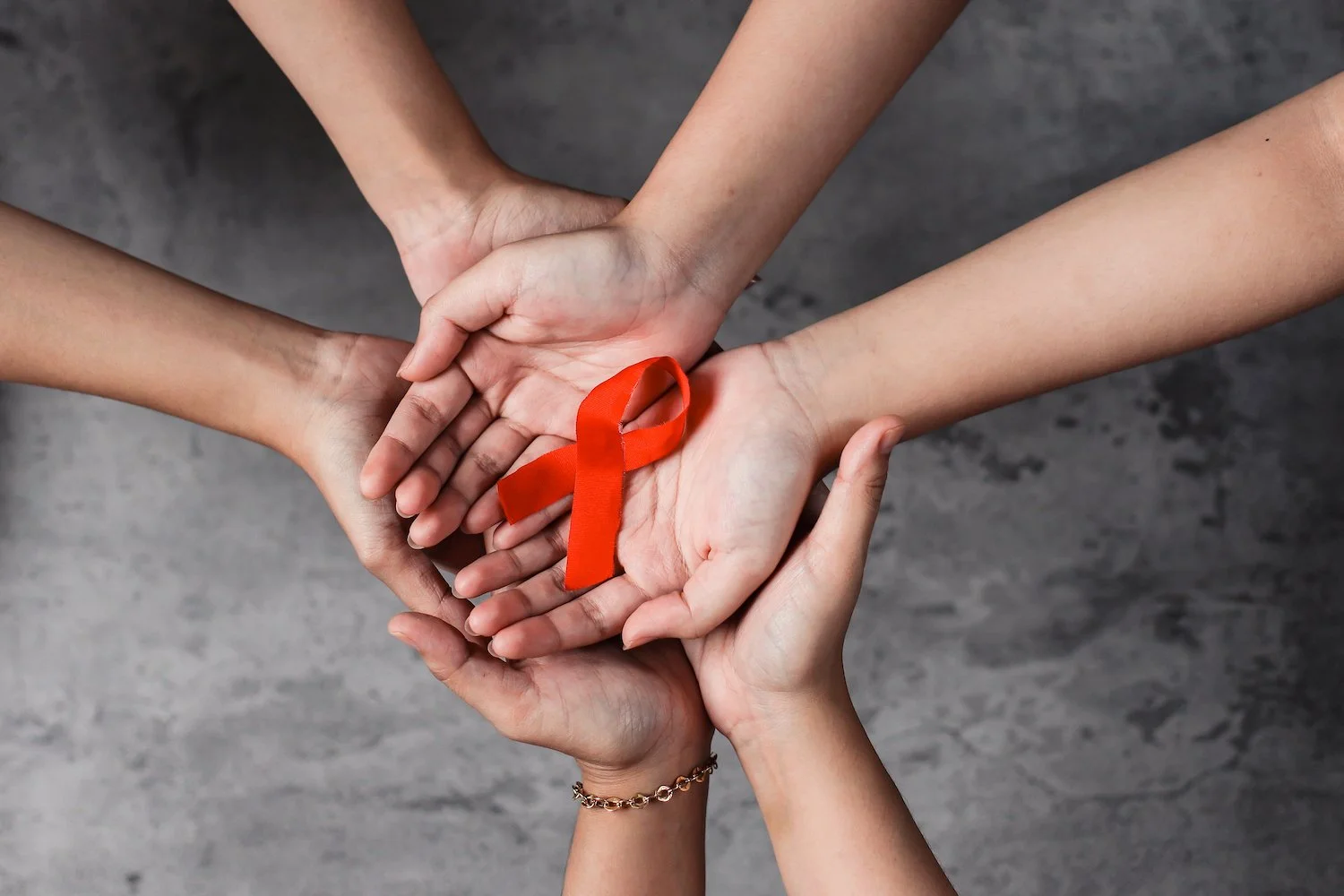How to Support an LGBTQ+ Family Member who has tested positive for HIV/AIDS
By Kollyn Conrad
Founder and Executive Director of Publicly Private
The LGBTQ+ community is disproportionately affected by HIV and AIDS. If you are part of the LGBTQ+ community, the truth is that you are likely to be called on to support someone with this disease. When that moment comes, you may feel helpless. Remember that your support can make all the difference, and we've got tips to help you step up and be there for a friend or loved one during this difficult time.
Supporting your friend or family member who has tested positive for HIV or AIDs
Finding out that a friend or family member has tested positive for HIV can bring on a rush of emotions, and you may not know how to process those feelings. You might be scared, angry, or both. Regardless of how you feel, know that it's perfectly normal and healthy to feel that way.
When you first imagine your friend or loved one's future impacted by HIV, you may visualize them as sickly and weak. But that's not the reality for many people. Often, they enjoy active lives with families and careers like anyone else. A person who is newly infected is typically prescribed antiretroviral therapy and, once treatment begins, the disease can be managed so that individuals don't experience symptoms or become symptomatic later in life.
Above all, it's important that your friend or family member knows that you're there for them — no matter what. On the other hand, it's also important to let them have time alone if they need it. Avoid pressuring someone into talking about their HIV status. Instead of pushing them to talk before they are ready, ask what kind of support they need from you right now. Do they want someone to listen, someone to take a walk with them, or someone who will let them gather their thoughts in peace?
It may seem obvious, but it’s impossible to know exactly how your loved one feels. We often assume we know what the experience of being diagnosed with HIV is like. Though you don't need to have been through this situation to support a loved one or friend going through it, you do need to steer clear of assumptions about your loved one's diagnosis and their experience with it.
No matter how much you care about your LGBTQ+ loved one, you can't help them through the grief process because it's their experience — it's about what they're feeling and thinking, not about what you do or don't do. You can help them process feelings and take care of themselves, but you can't take the pain away. The best thing you can offer instead is patience and consistent support.
Finding support amidst the stigma of HIV
The stigma of HIV is one reason why many LGBTQ+ people refuse to be tested or talk about their HIV status. In fact, the stigma around it can be so strong that even people who know their status might not tell anyone for fear of being judged or treated differently. That stigma often makes it difficult for people living with HIV to get treatment or stay on their medication regimen. This is especially unfortunate because by taking proper medication as prescribed, people can attain an undetectable viral load within six months. However, treatment is not a permanent cure. The viral load will increase when people skip doses or stop taking medication.
In the face of this discrimination, your friend or family member will need a robust support system. Let them know they can count on you and help connect them to support groups and friends in the LGBTQ+ community. Following are some local links:
AIDS Vancouver provides direct support to people living with, and affected by, HIV throughout the Lower Mainland. As one of the first HIV organizations in the country, AIDS Vancouver plays a special role and is clearly more than just a community health care organization.
Health Initiatives for Men (HIM) - HIM is a nonprofit society that aims to strengthen the health and well-being in communities of self-identified GBQ men and gender diverse people in BC offering a full spectrum of health-based programming and services to meet the sexual, mental, physical and social health needs of communities of self-identified GBQ men and gender diverse people in BC.
HIV/AID BC Centre for Disease Control - Information Site.
BC Centre for Excellence in HIV/AIDS - Canada’s largest HIV/AIDS research, treatment and education facility—nationally and internationally recognized as an innovative world leader in combating HIV/AIDS and related diseases.
Supporting a loved one in the event of an HIV diagnosis means creating a safe space without criticism or judgment. Be strong enough to help them during their journey and brave enough to respect their choices when it comes to disclosing their status or taking medication.
The number of HIV-positive LGBTQ+ people is growing. That's not a statistic: it's a call to action. If someone you love has tested positive for HIV, help them and others like them enjoy happy and healthy lives rising above fear, stigma, and discrimination.

